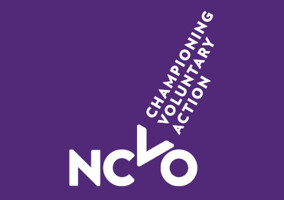All charities must now take reasonable steps to protect everyone who comes into contact with the charity from harm.
Historically safeguarding was associated with statutory obligations to protect children and adults at risk. However, from December 2017 the Charity Commission extended the concept and the duties of trustees to protect people.
Since then more guidance has been issued, but even now, the Commission acknowledges that its key guidance on this issue: Safeguarding Duties for Charity Trustees, published a year ago, is but a "starting point" and that the actual steps required will depend on a charity's size and operation.
That means that trustees are required to consider their own arrangements without a comprehensive checklist to work to. In this article we explore what practical guidance we can glean from the Commission's approach to safeguarding over the last year.
Guidance
The Commission's oversight of safeguarding governance is largely an outcome-focussed. It is unlikely to be interested in the detail, unless issues are brought to their attention. This may be by way of self-reporting, information-sharing by other regulators, media interest or complaint.
While the legal framework and an outcome focussed regulatory approach gives trustees some flexibility about how they should fulfil their obligations, it also means that there can be a lack of clarity about exactly what is required, especially in relatively new areas of its scrutiny, such as safeguarding.
In general terms the Commission expects trustees to:
- Make sure their community know about safeguarding and people protection.
- Have appropriate policies and procedures in place for the charity's operation.
- Check that trustees, staff and volunteers are legally permitted and suitable for their roles.
- Know to spot and refer or report concerns.
- Respond to concerns quickly and carry out appropriate investigations.
- Set out risks and how they will be managed in a risk register.
How this is done is a matter for the trustees to determine, depending on what their charity does and who it works with. It should take reasonable and proportionate measures to address the risks identified.
However, regardless of their operation, the Commission has made it clear that all charities should consider safeguarding. Those which have staff or work with volunteers should have:
- A staff code of conduct setting the charity's culture and behavioural expectations.
- Policies: safeguarding/health and safety/fire safety/first aid/digital safety/anti-bullying/whistleblowing
- Clear governance arrangements which cover at least annual approval of policies and oversight of the way they are working in practice.
- Insurance.
Whether or not they work with children or adults at risk. If they do, there are additional legal requirements prescribed by legislation and mandatory government guidance. These charities will also be separately regulated by other regulators in relation to safeguarding compliance.
Inquiries
As ever, useful information can be obtained from a review of relevant Inquiry reports which are published on the Commission's website. This autumn has seen the publication of a number of significant inquiries, in particular from a safeguarding perspective.
Failures to implement a charity's safeguarding policies contributed to an unsupervised individual taking classes. The inquiry into Essex Islamic Academy, which operates a mosque and madrassah, found that this individual showed children Daesh propaganda and had them role-play as terrorists and police officers, resulting in his conviction for offences against the Terrorism Act. His initial role with the charity had been administrative, but his role changed over time without its significance from a safeguarding perspective being appreciated. There had been no due diligence, no references and no formal employment contract and when his role changed, no DBS checks undertaken.
The Charity Commission opened an inquiry, appointing an interim manager and disqualifying five former trustees. The interim manager put in place a suite of new safeguarding and risk management policies (including whistleblowing, anti-bullying, external speaker and literature distribution policy) and monitored their effectiveness.
Safeguarding is also the subject of the inquiry report relating to Birmingham Diocesan Trust. The Commission opened an inquiry after the charity was selected as a case study for the Independent Inquiry into Child Sexual Abuse. It identified that safeguarding training was insufficient and a lack of appropriate steps were being taken to identify and manage risk. The Commission expressed serious concerns regarding safeguarding governance, in particular, whether the trustees had sufficient grip of the required remedial actions and were addressing these in a timely way. It was unclear whether sufficient resource was being deployed to ensure the trustees were discharging their legal duty of care and acting in the charity’s best interests by protecting its people.
The inquiry found that the board had a lack of safeguarding skills and experience and that it had failed to review the charity's safeguarding practices and keep pace with change, notwithstanding Commission guidance to do so, the nature of its activities, the safeguarding issues it was dealing with and the public spotlight as a result of IICSA. It found that safeguarding issues were not addressed effectively and that there was a risk of harm to people as a result.
Changes were implemented by the trustees in the course of the inquiry and the Commission was positive about the improvements wrought, such that it has now been closed. However the Commission issued the trustees with an Order under Section 84, directing them to take further action necessary to address ongoing concerns with safeguarding governance, in order to maintain momentum.
The Commission's expectation of board level review of serious safeguarding incidents and the recording and reporting of serious incidents features in the inquiry report into Bristol Sheltered Accommodation & Support Limited. Although safeguarding was not originally under scrutiny, the inquiry extended its scope once it was alerted to a number of safeguarding-related issues.
The Commission explains its safeguarding role in the inquiry report. It describes this as one to regulate the conduct of trustees and the steps they take to protect beneficiaries and other persons who come into contact with the charity, rather than the management of the issues themselves. The Commission explained its need to be assured that the charity is handling safeguarding incidents appropriately, and where necessary, the trustees are putting in place improved governance and internal controls, in order to protect beneficiaries and those connected with the charity from further harm.
Although the Commission does not administer safeguarding legislation or directly investigate incidents of abuse, mistreatment, or deaths, it explained that "Where appropriate, the Commission works with and refers concerns on to lead agencies, such as the police, local authorities and the Disclosure and Barring Service (DBS), as well as to specialist bodies responsible for designated areas, such as education or health and social care". Reporting obligations to other bodies should therefore be considered alongside those to the Commission and trustees should be ready for Commission scrutiny where reports are made to these bodies.
This inquiry reviewed and was satisfied with the charity's safeguarding policies and procedures and its house rules for the hostels’ residents. It was also satisfied with the procedures for their review and sign off and its staff suitability checks. However it was concerned by the trustees' inability to provide records of trustee meetings to demonstrate that safeguarding-related incidents were being discussed, notwithstanding an action point stipulation that the charity must ‘record all serious incidents in the future, including safeguarding-related incidents, and ensure that such incidents are promptly reported to the Commission’. Again, careful records to evidence such discussions while maintaining confidentiality and information law obligations should be retained.
The inquiry became aware of two safeguarding incidents which it considered serious and which were not recorded in the trustee meeting minutes or to the Commission. It expressed concern that the charity again appeared to be giving little consideration to advice issued by the Commission and informed the trustees of this.
The trustees then failed to report a further serious incident (albeit not of a safeguarding nature). The inquiry found this to be mismanagement and/or misconduct in the administration of the charity. The charity was issued with an Official Warning on 14 August 2019 stipulating that the charity must ensure that all serious incidents, including safeguarding-related incidents, are promptly reported to the Commission. The inquiry then moved on to provide some wider advice on reporting to the sector, specifically:
- If a serious incident takes place within a charity, it is important that there is prompt, full and frank disclosure to the Commission.
- Although the responsibility for reporting serious incidents in a timely manner rests with the charity’s trustees, in practice, this may be delegated to someone else within the charity, such as an employee or the charity’s professional advisers.
- If the trustees decide not to make a report about something serious that has happened in their charity and the Commission later becomes involved, the trustees will need to be able to explain why they decided not to report it at the time.
Although it has not yet released an inquiry report into Ringpa Fellowship, the Commission has removed (and consequently disqualified) a trustee for not appropriately managing safeguarding concerns in that they "had knowledge of instances and allegations of improper acts and sexual and physical abuse against students at the charity, but failed to take appropriate action in response."
What you should take from these
- Remember your personal safeguarding duties including to yourself identify and report issues of concern.
- Ensure that you have appropriate safeguarding skills and experience on the board.
- Ensure that your charity undertakes appropriate checks of all of your trustees, staff and volunteers. That doesn’t mean that everyone must be DBS checked, but calls for careful consideration of what people will be doing for you and what checks are appropriate in that context.
- Consider the nature and scope of codes of conduct and whether these help to set an effective safeguarding culture by setting out the charity's expectations regarding people protection.
- Ensure that it has not only the mandatory policies listed above, but any others which may help to manage key risks for effectively, and that these are reviewed by the board - not just in terms of their compliance on the face of them, but also whether they are fit for purpose and followed in practice.
- Keep appropriate minutes or other records of trustee oversight of the management of safeguarding issues.
- Review your arrangements for reporting serious incidents to the Commission. Ensure you have clear delegation arrangements and effective records of decision-making in relation to reporting and deal with any requests for information from the Commission promptly. While decisions about reporting rest with trustees, it is clear from the Commission's approach and recent scrutiny of reports, that they have a low threshold of what they consider to be "serious" especially in a safeguarding context and expect reporting beyond "incidents" to include allegations and concerns, regardless of when the issue arose and expect trustees to ensure that they have a proper grasp of the facts and arrangements to manage issues and to demonstrate this in their reports.
Tabitha Cave is dispute resolution solicitor at VWV
This content has been supplied by a commercial partner
|
Related articles












